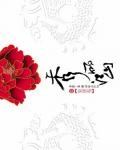Volume 1: Birth! Seven time travelers Chapter 93: The Foundation of the Nation Has Decayed (V)
"Hiss~~" Everyone took a deep breath and were unable to speak.
After Zhu Youdong's explanation on the way here, everyone in the group knew the significance of the Yellow Book Library to the Ming Dynasty. However, the current situation of the Yellow Book Library made everyone feel horrified.
The Yellow Book of the 20th year of Wanli was the basis for the Yellow Book of the 30th year. If the Yellow Book of the 20th year was damaged or rotten, then the Yellow Book of the 30th year would be meaningless: without the foundation of the previous years, how can you ask the students to check and verify? If it is impossible to verify, then the local authorities can do whatever they want, right?
And Zhang Yong just said that the batch of 30 years ago is even worse than the batch of 20 years ago. What does this mean? The local authorities have been reckless about this matter! But, but this is a matter of life and death for the country!
If this trend cannot be effectively reversed, the Yellow Book will lose all its meaning in a few years. And if the country loses the Yellow Book? We don't know how many people there are, how much output there is, and how much property the people have. What basis do you have to collect taxes? Are you collecting taxes randomly? What if the people are forced to live?
Moreover, you should also know that, in addition to the Civilian Yellow Book, there are also Military Yellow Books and Craftsman Yellow Books on other islands! In short, if the Yellow Book loses its effectiveness, the country will not be able to effectively control the people, the army, and the craftsmen!
What the hell! The foundation of the country is gone, and everyone is just waiting for the country to perish! Do you really think that the literati can support a country?
The awkward silence lasted for a long time. Finally, Zhang Shize tremblingly asked a question: "Well, the Yellow Book Library is so important, but the court didn't allocate special funds for the production of the Yellow Book?"
Zhang Yong already had a nonchalant expression, looking at Zhang Shize who was asking questions in surprise. He smiled sarcastically, "Your Highness may not understand yet, right? In fact, apart from the fact that there is no special expense for the production of the Yellow Book that needs to be borne by the localities, even the daily operating expenses of this Yellow Book Library do not have any special expenses from the court."
"Ah? How could this be? Your Highness? Is this really the case?"
Seeing the surprised and questioning looks from Zhang Shize and others, Zhu Youdong felt a headache: What era did he travel to? Why did those who traveled to the Chongzhen era in the Ming Dynasty novels on Qidian always turn the tables? He was still in the Wanli era. After seeing the current situation of the Yellow Book Library, he felt a little desperate!
Zhu Yuanzhang, the founding emperor of the Ming Dynasty, was a great hero and a shrewd politician. But he also had many shortcomings, one of which was stinginess.
In the 13th year of Hongwu, when the Ming Dynasty began to implement the Yellow Book, it required that the paper of the Yellow Book must be insect-proof and moth-proof so that it could be preserved for a long time. However, the Ministry of Revenue of the Ming Dynasty only designed the format of the Yellow Book and required the quality of the Yellow Book, but did not provide the paper for the Yellow Book. The paper had to be the responsibility of local governments at all levels.
For the Chief Secretary, the cost can be apportioned to the state capital, and the state capital can apportion it to the county... In the end, the cost still falls on the common people.
The emperors of the Hongwu and Yongle dynasties were both ruthless. Officials were not too greedy and were relatively serious about their work. Therefore, officials at all levels could basically collect two copper coins from the people to get something worth one copper coin. In the later period, with the corruption of official style and the decline of administrative efficiency, officials asked the people to collect one or two taels of silver for the Yellow Book, but they could not produce a Yellow Book worth half a copper coin.
If it is understandable that when the Ming Dynasty was just established, the lack of household registration made it impossible to effectively collect taxes, resulting in insufficient national financial resources, so that the cost of compiling the Yellow Book had to be borne by the people, then Zhu's allocation of funds for the operation of the Yellow Book Library really reflects his "stingy" nature.
After the Yellow Book Library was established, the official in charge of the library wrote to the Ministry of Public Administration: Your Majesty, the daily maintenance of this library, the regular flipping and drying of the Yellow Book, and security will always require people, right? And the repair of the library rooms, in addition to labor, also requires materials, right? In addition, every ten when the Yellow Book is stored in the library, although the court dispatches students from the Imperial College to help, we don’t have to pay them, but more than a thousand people also need to eat. Where does the above money come from? Should we ask the Ministry of Revenue to list a separate expenditure for our Yellow Book Library to facilitate our future work?
Old Zhu’s answer was: This matter cannot be funded separately. The office expenses of your Yellow Book Library are the responsibility of the Imperial College.
The Imperial College was immediately depressed: As an educational institution, we are extremely poor. It's ok to do voluntary labor once every ten years, but we are also required to bear the operating expenses of the Yellow Book Library for a long time? No, Your Majesty, we don't have enough money.
Then Zhu slapped his head and said: In this way, if the Imperial College does not have enough money, let the Ministry of Works hand over the surplus of annual office expenses to the Huangce Library. If the Ministry of Works does not have enough money that year, let the Ministry of Revenue hand over the surplus of office expenses that year. It is impossible that all three departments will not have enough office funds at the same time in one year, right?
Again, when Zhu was in office, everyone followed the rules. There was less corruption, and no one gave out bonuses to departments indiscriminately. Therefore, at the end of the year, the three departments mentioned above had a surplus. Moreover, under Zhu's powerful authority, no department dared to shirk responsibility, so the operating funds of the Yellow Book Library could still be guaranteed.
But when Zhu Yuanzhang collapsed, especially after Zhu Si collapsed, several departments started to pass the buck to each other.
We definitely don’t have any surplus office funds! Absolutely not! We work so hard, how can we have any surplus office funds? We are just short of money, okay? Not only can we not come up with a penny to support the Huangce Library, we also need the court to reimburse us for office funds !
Then the Huangceku was dumbfounded.
In fact, the whole country, from the emperor to the common people, recognized the importance of the Yellow Book Library. Without the Yellow Book Library, the emperor would not be able to understand the specific situation of the whole country. Without the Yellow Book Library, once the people had a real estate dispute, they would not be able to verify the original data. As for the ministers, many officials openly said: The Yellow Book Library is the foundation of the country's longevity... However, when it comes to asking for money from the Yellow Book Library, everyone avoids the question.
This is normal and a common feature of bureaucracies.
Yes, your Huangce Library is indeed very important, but it is very important to the country! What benefits can your Huangce Library provide to my department? You want me to transfer money to you, what can you let me get? Isn't it true that officials pay attention to the exchange of interests? Of course, brother, I definitely recognize the importance of your Huangce Library to the country. I am also willing to appeal to other departments for your funds, but, brother, I really can't take out the money.
Well, the bureaucrats are passing the buck, right? Then can I go directly to the emperor? This world belongs to you! You have to take it seriously.
Unfortunately, Zhu's descendants all inherited Zhu's characteristics: stinginess!
The Zhu emperors were extremely impatient with any request for additional spending. They didn't want to listen or take any action.
In the end, the Nanjing Ministry of Revenue, the administrative unit of the Yellow Book Library, had no choice but to find the two county magistrates in Nanjing City (Shangyuan County and Jiangning County) and said: Well, you two counties will bear the operating expenses of the Yellow Book Library.
The imperial power in the Ming Dynasty did not extend below the county level, so the county-level organization was the lowest level of official administrative agency in the Ming Dynasty. The two county magistrates had no choice but to allocate the funds needed for the Huangce Library to the ordinary people in the two counties.
In the Ming Dynasty, the real land tax was not high. Except for the Suzhou area ruled by Zhang Shicheng, other places were about 15% to 20% of the tax. However, you can't help but impose unlimited additional taxes and levies! Just the Huangceku department alone can derive these two additional taxes (in fact, more than that). What about other departments?
When Zhu Yuanzhang designed the national system, he made the national economy too rigid. So when the country developed to a certain level and needed additional expenditures, the various state departments often just passed the buck to each other. If they couldn't pass the buck anymore, they would just pass the buck to each other, and eventually, the burden on the people became heavier and heavier.
Moreover, the apportionment of taxes has an amplifying effect. This effect will become more and more terrible as the bureaucracy becomes more corrupt. And as this effect continues to extend, it will in turn promote further corruption of the bureaucracy, forming a vicious cycle.
For example, the annual salary of the staff of the Huangce Library, office expenses, etc. is about 500 taels of silver. In order to make life easier, the chief officer of the Huangce Library made it 800 taels when doing the accounting. This is the first time to magnify it.
Shangyuan County, which was in charge of this money, took a look and said, "Oh, Jiangning County is responsible for 400, and we are responsible for 400. But we have paid so much for this matter, why are we only adding 400?" So the county magistrate waved his hand and said, "Listen, people of the whole county, now this county will add 500 taels of yellow book tax." Jiangning County did the same. As a result, the demand for 500 taels of silver was magnified to 1,000 taels. This was the second magnification.
The county magistrate could not collect taxes directly. He had to hand it over to the household department, and the chief of the household department handed it over to the head of the village, and the head of the village handed it over to the head of the village... I don't know how many times it would be magnified in this process. Perhaps the actual demand of the Yellow Book Library was only 500 taels, but in the end, 2,000 taels were allocated to the people.
In this process, officials at all levels benefited, and the only victims were the common people. And what would be the reaction of officials at all levels who enjoyed themselves in this process if they were to face the imperial court's apportionment next time?
This is indeed something that Lao Zhu did not expect back then. He always thought that trying to reduce expenditure items is to save money. But he did not expect that the magnifying effect of apportionment would be so terrifying.
Imagine if Zhu Yuanzhang had directly agreed to add a special expenditure for the Yellow Book Treasury to the expenditure of the Ministry of Revenue. Although the money would still be paid by the common people in the end, the burden on the common people would be at most 500 or 600 taels and would never soar to 2,000 taels...
Before Zhu Youdong traveled through time, he had read a paper that studied taxes in the Ming Dynasty. The characteristic of this article is that its author is an economist with a background in science and engineering. After carefully designing a formula and repeatedly calculating with a large amount of data, the author came to the conclusion that during the Hongwu period, the tax burden on each farmer was equivalent to 0.26 taels of silver. During the Yongle period, it was 0.31 taels. During the Tianqi period, it was already 2.0 taels! During the Chongzhen period, it was 5.0 taels!
What does five taels of silver mean? In peacetime, when grain prices are low, you can buy more than 500 kilograms of rice! Note that this is husked rice, not newly harvested rice.
MD, it would be unfair if the people didn’t rebel.
With a long sigh, Zhu Youdong said to everyone in a listless manner: "I know everything about what happened here. Let's stop here today. Give the order . I want to go back to Nanhua Palace."






